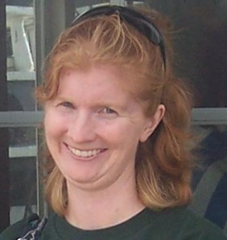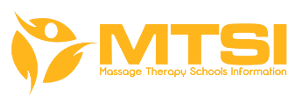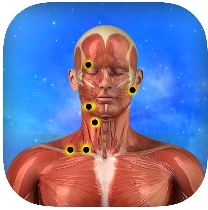
I work as a business owner. I run it, myself, and do everything myself, except with a couple of minor exceptions. I rent a room from a chiropractor, and my clientele seems to be primarily those who need to have the work done on their upper body, because of working in an office environment. So I guess my specialty is the Back, Neck, and Shoulders. I work in Tustin, CA and live in Santa Ana, CA.
2. Tell us why you chose to go into massage and at what point in your life did you decide to do so? What were you doing at the time? Where did you first hear about the massage career? What factors influenced your decision? What were you looking to get out of this decision?
I went into massage therapy, because I hate to see anybody in pain. I choose to go into it when my first field of choice of career (0ut of high school) basically fell apart. I used to work with children ranging in age from 8th grade to newborn, i.e. in childcare, preschool. I’ve always been aware of massage therapy being a career. What influenced me was that when I was in 2rd grade, my teacher had convinced us that a reward for finishing work earlier (in the classroom) was to come up and massage her shoulders. So from then on out I would always go up to people that I cared about and rub their shoulders. The summer that I was turning 13, I did that to my choir director, and she shared with me years later that was one of the best shoulder rubs that she ever received. She is one of my regulars to this day.
3. What were some of your questions and concerns before further pursuing your massage therapy goals? Talk about concerns with school and the profession itself.
Well, I have since learned (since becoming a massage therapist) that I learn best in using my hands and I need to have a lot of repetition to have presented to me slowly. A concern that I have for learning and schooling is that I won’t be able to afford to have a teacher go at such a pace with a new set of techniques that I want or should learn to make my career more enhanced. As for the profession itself, I am concerned that we won’t be able to push past the massage parlor image that part of the population still seems to have about what we do.
4. What is your specialty and what are the top three contributing factors to your success today?
My specialty at the moment is Back, Neck, and Shoulders.
1) That I am consistent in what I do and in what I say.
2) That I try to follow up with my clients as much as I can.
3) And I try to see where my clients are coming from.
5. What do you like about your specialty? What do you like about what you do in general as a career? Why?
What I like about my specialty is the fact that I am told over and over, by some of the people that I have worked with that I’m either the only one or one of the few massage therapists that actually work on someone’s neck. I like being able to help people deal with their pain and that means a lot to me when someone comes back and says that I have been able to help them with it.
6. What do you not like about what you do? Why?
I am a people person, not a project/ object person. So I don’t like doing paperwork.
7. If there were three things you could change about your work or the industry as a whole what would they be? Why would you change them? What would you change them to?
One, I would change how the public, in general, feels about massage. It’s not something that only the rich can afford. It is about the healing that can come from it, and it should be something that everyone could afford. It can be a vital part of someone’s healing process.
Two, I would want to change the fact that many people, even in compliantly professions i.e. chiropractors, think that we can just do the same thing day in and day out and that we would not get over use with our own muscles. That we are cheap labor monkeys. We are not. We have brains and know how to use them, trust us and let us put our knowledge to the test.
Three, massage is not sex! It has a totally different focus and goals! The “therapists” who provide “happy endings” are abusing the public and making them think that is what massage is all about and it’s not. To be truly therapeutic, we need to be able to gain access to work in the hospitals and clinics, once we can do that more regularly and gain more recognition of what we can do, then hopefully that stereotype will go away once and for all.
8. How long do you plan to practice and what do you plan to do after?
I do not have a clue of how long I will be in practice for. Maybe afterwards I could be the Deaf counselor that I always wanted to be.
9. Do you currently have another job or business whether full time or part time? Tell us a bit more about it and how you are able to juggle that with your massage career?
I did have another job for a short while. It was supposed to be a part time job, but it got out of hand. It ended up almost taking up all of my time. I was not able to take care of it and my massage career at the same time, effectively. I had to quit it. Because I am sole person making Crane Massage Therapy work. I have a couple of people who do small things, behind the scenes, but it is me who makes the grinds work.
10. What are some mistakes you made in your career pursuit that you’d like to warn other students about so they can learn from your experience and avoid it?
Don’t ever settle for less. I was working for a short time, at a chiropractor’s office. There was a span of about 4 months, when I was working, but I never got any clients to work on. I finally decided that due to whatever reason it was, that was not meant for me. I took charge and starting cold calling around to see who was hiring. You need to be active in your career as a massage therapist or else people will walk all over you.
11. What would you advice someone who is looking at massage therapy schools? What do you recommend they look for and how? How do you recommend they determine whether the school is the right one for them?
Go for a school that you could identify with or put your back against the wall for. If you want more of a science basis, then go for it. If you like the energy work aspect, than go after that. If you like learn slowly, don’t be afraid to find a school that goes slowly with their teaching. If you learn fast, than that’s good to look for. I would also say that if you learn better working with your hands than that is what you need to be looking for. If the percentage you need to be higher is book learning, than that is what you need to ask about. So make a list, however, short or long, of the things that you are looking for and good at. That way you have a basis of things that you already know that you need, to complement you with your strengths.
12. What do you recommend for someone who wants to go to massage school but cannot afford it?
That was totally me at both of my schools. The first school I went to, accepted financial aid, so I took it. My second school didn’t accept financial aid, but it did take private loans. So, I took out a bank loan to pay for it. I would look into the small print, of the financial aid, no matter which way you would go. Cause the interest rates could get so steep, that it might be more costly than it’s worth.
13. What are your three biggest points of advice for an aspiring massage therapist today? What should they do/not do? What should they think about and consider?
Stay focused, but flexible. Keep learning. Find your niche of people whom you plan to help.
14. Any open thoughts / comments – anything else that you’d like to share about yourself, the massage industry, profession, future, etc? If nothing, make one prediction for the future of massage?
Massage therapy is hard work, but it is so rewarding. Don’t forget to take care of yourself, you need to in order to survive. Be open to feedback, from colleagues and clients, it will make you a stronger, more well rounded therapist.
15. What is your passion outside of massage? What are your hobbies and interests which you pursue when you are not working? Tell us why you enjoy what you enjoy.
I love my friends and family. I love to crochet, bake, to read, and play any kind of game. I love my life, and being active. So, that is what helps me going and not to side on the sidelines.
Faye Crane graduated from Career Networks Institute with 720 hours of massage education and from Western Institute of Neuromuscular Therapy with 500 hours in their upper Professional Massage Therapist course. You can reach her on her blog at www.cranemassagetherapy.com.








Leave a Reply